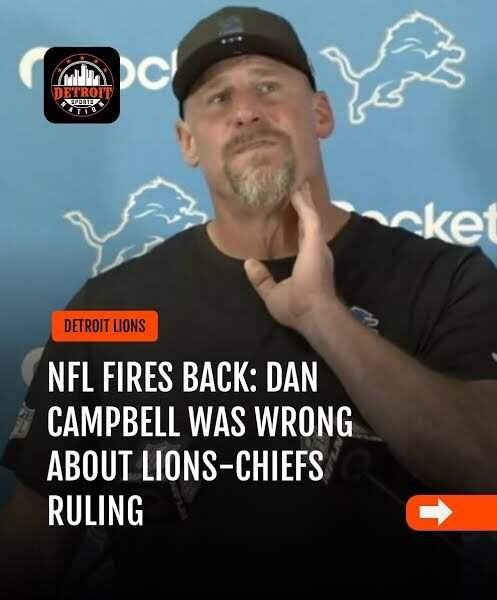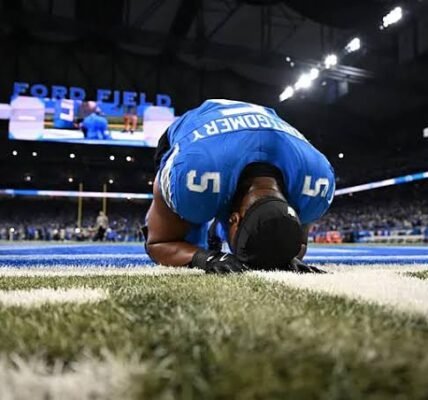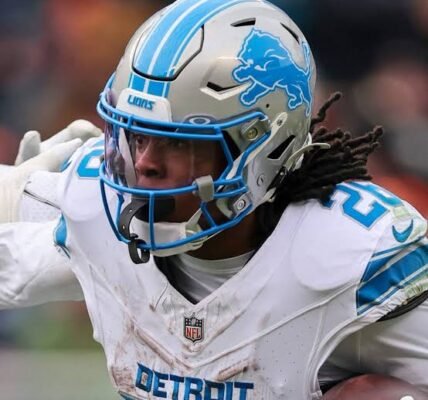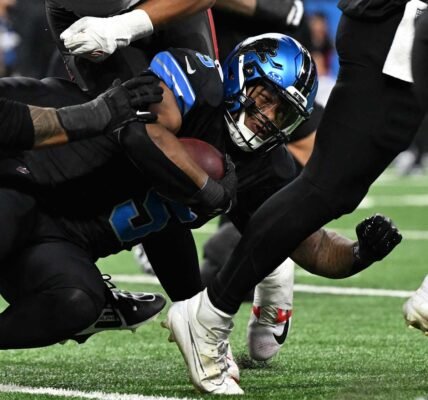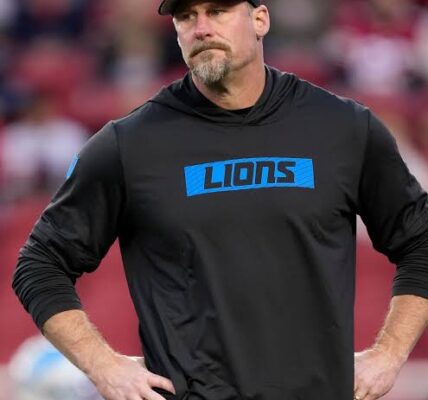The Detroit Lions remain firm 2025 contenders, but one strange sequence from Week 6 against the Kansas City Chiefs won’t seem to disappear. A trick play that could’ve been one of the season’s top highlights — quarterback Jared Goff hauling in a touchdown pass from David Montgomery — instead turned into one of the most controversial officiating discussions of the year.
Originally ruled a touchdown, the play was overturned for an illegal motion penalty, erasing six points and leaving both head coach Dan Campbell and Lions fans furious.
Afterward, Campbell said he believed the decision “came from New York,” referencing the NFL’s Art McNally GameDay Central, the league’s live replay command hub. But the NFL says that never occurred.
Troy Vincent Disputes Campbell’s Version of Events
NFL executive vice president of football operations Troy Vincent addressed the matter Thursday, leaving no ambiguity.
“It was not, and I’m unsure who coach Campbell was referring to, but we did not (intervene),” Vincent told Mike Florio of ProFootballTalk. “We had no involvement in that. We didn’t need to. I’m part of GameDay Central every week.”
Vincent elaborated that GameDay Central lacks the authority to assess illegal motion calls — those can only be made by on-field officials. He added that the referees’ real-time communication was audible during the broadcast.
“You could hear the officials talking as the play unfolded, even before the touchdown,” Vincent explained.
Many fans questioned the late flag, which appeared only after the score. Vincent compared it to how officials handle intentional grounding, where multiple referees must confirm the details before throwing a flag.
“They’re talking it through,” Vincent said. “In this case, though it was motion — an illegal shift — it’s similar to grounding. They must verify: did the ball reach the line of scrimmage, was there a receiver close, was the quarterback in the pocket? You could hear that communication process. But we had no role in this call.”
That explanation supports what lead referee Craig Wrolstad stated following the game.
“My responsibility is to determine if the quarterback paused first (under center),” Wrolstad said. “The down judge tracks the man in motion, and we had to coordinate between him, my umpire, and my line judge to decide if he paused at the quarterback and again after moving left, beyond my view.”
Wrolstad noted that this inter-crew discussion caused “a bit of confusion,” explaining the delayed flag.
The NFL’s comments may not ease the frustration of Lions fans who feel deprived of a signature touchdown, but they officially end the idea that New York interfered.
Still, the moment highlights ongoing friction between coaches and league officiating. Campbell’s anger wasn’t just about the call — it reflected deeper concerns over communication and clarity in a system that often leaves even coaches uncertain.
